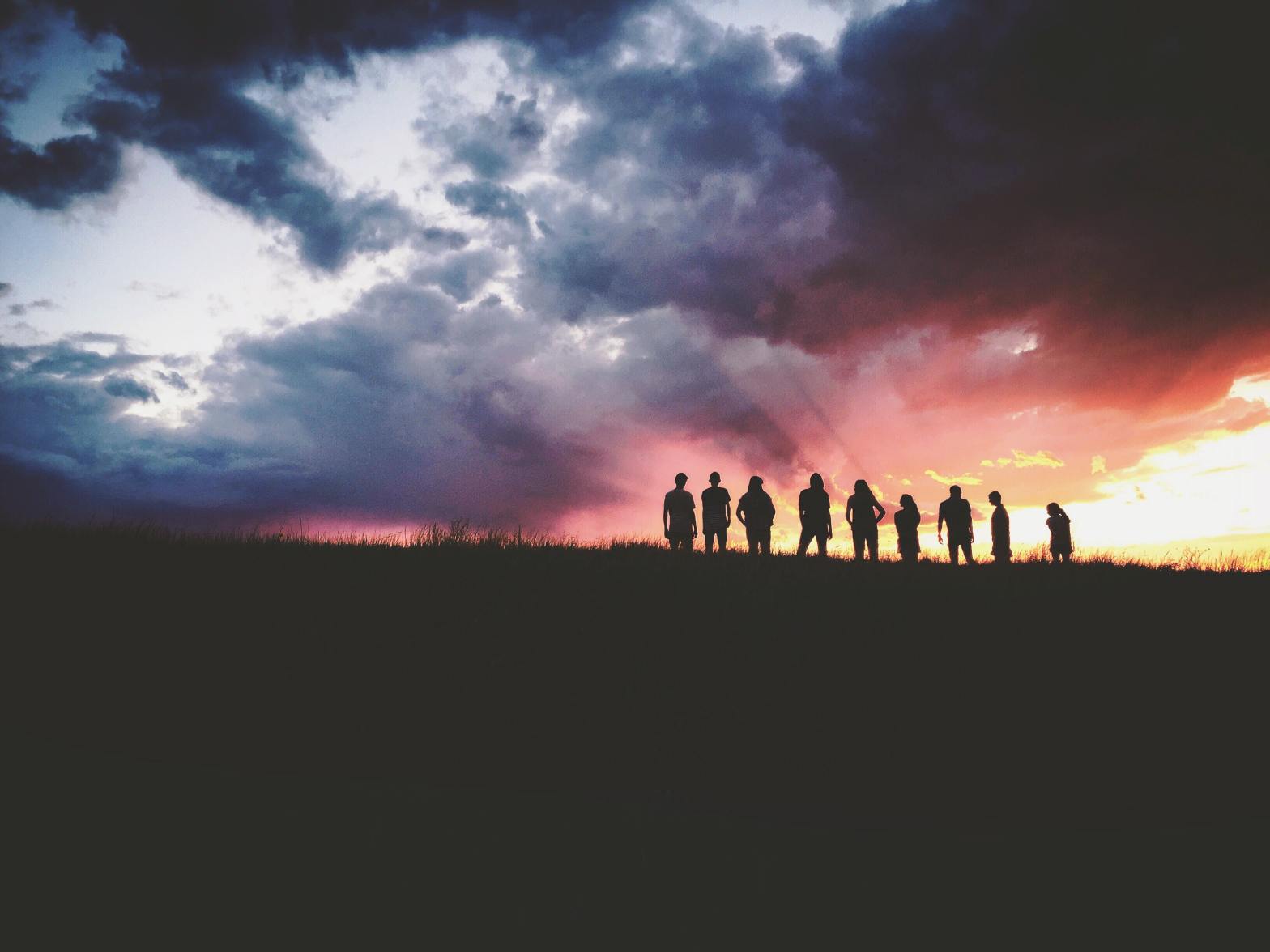We are peculiar creatures. We do odd things like point out the faults in others. The funny thing is that we often point out the very things that are wrong in us. Kinda like how the liar is often the one to point out when someone else is lying…. What’s up with that? Perhaps it’s a defense mechanism within us that we automatically point out the faults in others so people don’t see the faults in us…. We like to hide. Perhaps this harkens back to Adam and Eve hiding from God after they left the front door open and invited sin to enter the world.
It’s quite absurd actually… hiding from God… just the thought makes me chuckle. Funny how one thought can make you chuckle and at the same time shake you to the core. What a terrifying thought…. You can’t play hide and seek from God. It’s not possible. We have this scene in the Garden where Adam and Eve are hiding and God asks, “Where are you? ” However, it’s not because He can’t see them…. It’s because they have left his presence.
We need to understand the relationship that God had with His creation at that time. God had this incredible relationship with Adam and Eve. In Genesis 2:25 we read, “Adam and his wife were both naked, and they felt no shame.” The relationship between God, His creation, Adam and Eve was so true, so pure that they felt no shame in the most vulnerable state a person can be in.

Let me pause for a moment here before we continue…. Right about now you’re probably feeling insecure and awkward and that’s ok. That’s to be expected. Anytime we hear the work NAKED we get uneasy. When we go to the doctor and they instruct us to take off our clothes and put that skimpy ¾ of a gown on, we start looking for ways to escape! Am I right? The thought of anyone seeing us completely vulnerable in our natural state is absolutely terrifying! Some of us avoid medical attention for that very reason! However, for God and His creation this was not the case.
Adam and Eve had nothing to hide. Their nakedness represented the intimate relationship they had with their creator, God almighty. So, when they disobeyed God’s command that closeness that they had with God was, well… broken.
I’m reminded of the relationship between parents and children. At first there is pure joy and freedom between parent and child. Separation is virtually nonexistent. You always want to be with each other. And as the child grows, they begin to develop independence and start doing things on their own, which is absolutely normal. And if everything goes well, the child will make the right decisions and maintain that closeness they had with their parents. It’s when the child makes bad decisions that walls are built and unhealthy separations begin to take place.
It’s when we, the children, begin to make decisions that go against God’s command that we find ourselves far away from His presence. Hiding in the shadows. Hoping that we won’t be found out. That’s the separation. And sin, no matter what it is, separates us from our creator who so desperately wants an intimate relationship with us.

As you read the story of the Eden crisis, you can feel the disappointment in God’s voice. He knew what happened. Yet He still asks, “‘What is this you have done?” (3:13a NIV). What a heavy question. God knew exactly what happened; however, this question isn’t for His own clarification… This is an accountability question. He’s asking them to take responsibility for their actions. This is profound being as though Adam had already thrown his bride under the bus when he was called onto the carpet to take responsibility for their actions the first time. When God asked what happened, “The man said, ‘The woman you put here with me—she gave me some fruit from the tree, and I ate it’” (3:12 NIV). Eve fesses up. She tells God exactly what happened. And God issues the consequences for their actions. They are kicked out of paradise to labor and toil in the wilderness. Their closeness with God has been violated and now they are separated from what they once had.
But there is something else going on here. Many read this story and miss the biggest truth about it. The truth is that what they deserved was death. Isn’t that what God told them would happen if they disobeyed Him and ate from the Tree of Knowledge of Good and Evil? In Genesis 2 we read: “And the Lord God commanded the man, ‘You are free to eat from any tree in the garden; but you must not eat from the tree of the knowledge of good and evil, for when you eat from it you will certainly die’” (vv. 16-17 NIV). Not only does He give the command, but He warned them of the consequence as well. And yet, they did exactly what they were told not to do.
You can’t blame them really. And I’m sure they didn’t wake up that morning thinking to themselves, “Let’s put God to the test today and disobey His commands. Satan, played by the serpent, gave a compelling argument as to why they should. In Genesis 2:4-5 we read: “‘You will not certainly die,’ the serpent said to the woman. ‘For God knows that when you eat from it your eyes will be opened, and you will be like God, knowing good and evil’” (NIV). I mean, that’s pretty solid…. It’s a lie, but it worked. They bought it hook, line, and sinker. But, here’s the thing…. Satan didn’t make them do anything. He simply made the suggestion.

We are notorious for blaming Satan for our sins, but guess what? He can’t make us do anything! He can’t do anything to make you sin against God that you don’t already want to do. We see this here in the Garden and we have another great example when he tries to persuade Jesus to sin in the dessert in Matthew 4. Here Satan tries three different times to persuade Jesus to give up His messiahship and follow him instead of God, and Jesus doesn’t buy into the lies. This shows us that sin is a choice that we make, not something that we are forced to do. Now I know that we aren’t anything like Jesus, but aren’t we supposed to strive to be more like Him? Jesus is more than a savior, more than our King. He is to be the example of how we are to live each and every day!
God gives us a beautiful picture here at the very beginning of our story. Sure, we lost life in paradise and a division between God and humans was created, but God provided a way for us to reconcile our relationship with Him… Through His one and only Son, Jesus Christ. You see, because sin entered the world, man had to endure death. A physical and a spiritual death. A price had to be paid to atone for our sins. So, God, the creator, got creative. He put into motion a plan for our salvation. A way to pay the debt of our sins. At first this was done through burnt offerings and animal sacrifices. This was the way our sins were atoned for until Jesus hit the scene and God’s salvation plan came to fruition.
Jesus gave His life so that He can save ours. When Jesus was crucified and rose again, the price was paid for the sins of all humanity.


















